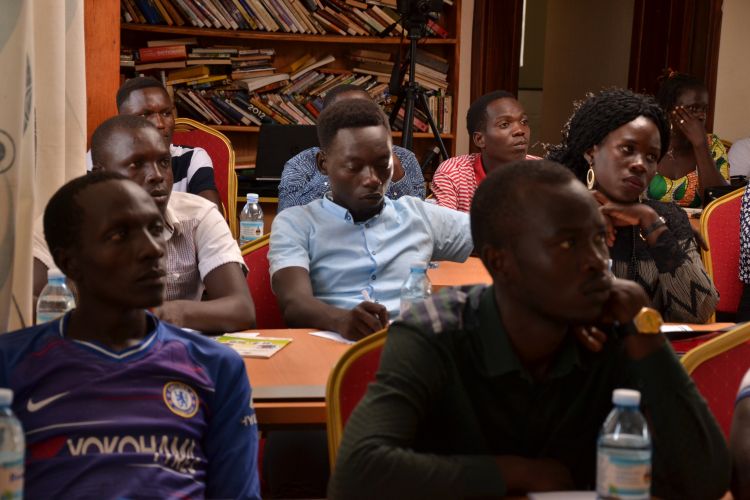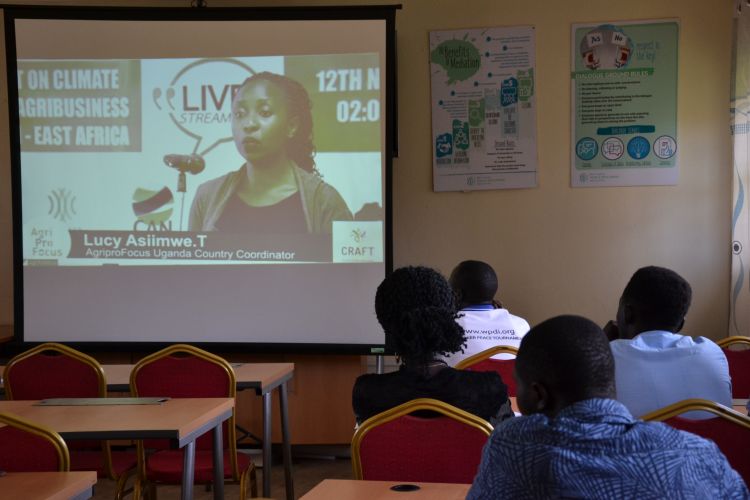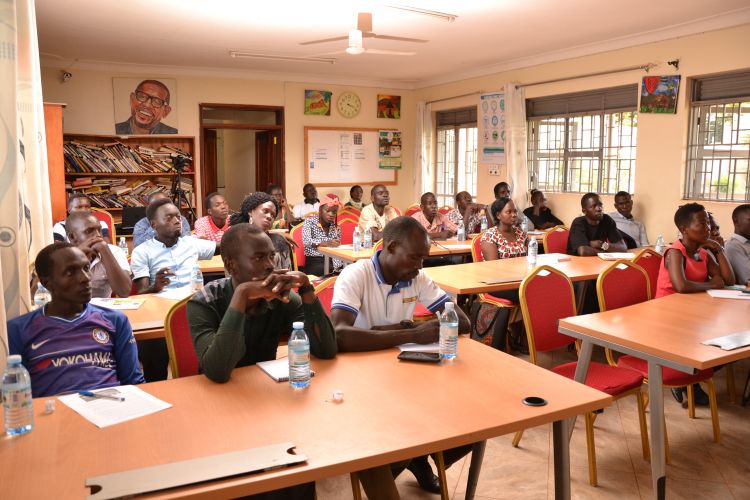
November 13, 2019 – On Tuesday, the Whitaker Peace & Development Initiative (WPDI) hosted an e-Summit on the development of climate-resilient agribusiness opportunities for youths in East Africa. This summit was organized following a report issued by the United Nations Intergovernmental Panel on Climate Change in August. The report stipulated that intensive land use, driven by changing nutritional demands, is a major and growing catalyst of climate change. In light of our work to help the world achieve the Sustainable Development Goals (SDGs) and empower youths with the skills and tools they need to become transformative leaders, WPDI welcomed the opportunity to host the summit at our Community Learning Center in Gulu.

That climate change has had an impact on agriculture is especially evident in East Africa, where population growth has been rapid and agricultural productivity has struggled to keep up. Over the years in countries like Uganda, Kenya, and Tanzania, industrial agriculture practices have resulted in a loss of biodiversity and soil degradation, rendering communities vulnerable to the effects of climate change. This has resulted in the outbreak of new diseases, higher rates of rural-urban flight, and high levels of youth unemployment – especially in farming communities.
In the face of these challenges, it is critical to envision new ways forward, ways that rest upon harnessing the talent and potential of young people. This outlook is core to WPDI’s mission, which focuses on finding long-term solutions that involve local populations and young people in particular. By harnessing the energy and enthusiasm of youths in places like rural Northern Uganda, we can contribute to fundamental changes in the agricultural sector of East Africa and beyond, ensuring greater food security and an awareness of the impact of climate change. In that respect, the summit will provide young entrepreneurs with a platform to learn about climate change adaptation strategies, emphasizing innovation and resilience. It also seeks to foster greater awareness about climate change and increase collaboration between stakeholders and agri-entrepreneurs.

Next, we plan to mobilize our grassroots peace force of youth peacemakers in Northern Uganda – which numbers over 300 young people – to put into practice what they learn during the summit. As they are currently designing small, social impact businesses in their communities, we know that this opportunity will be an enterprising one for them.